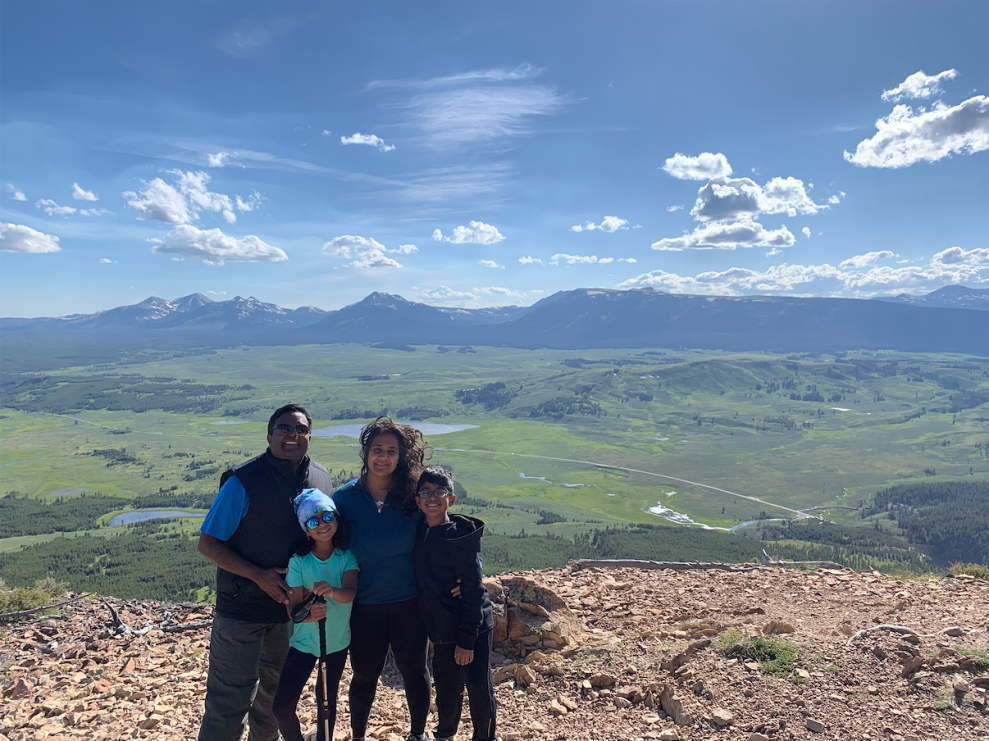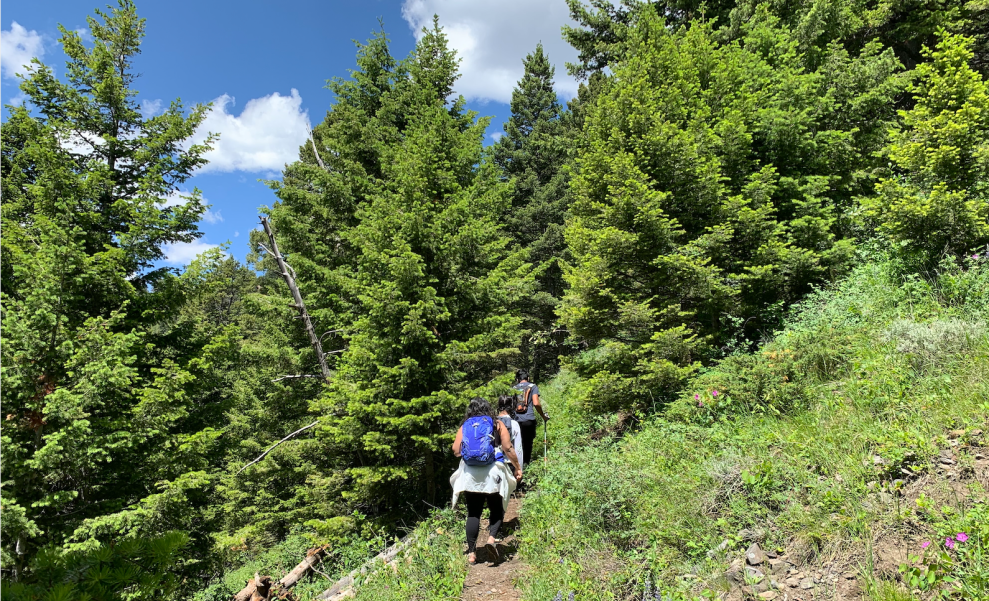
Bunsen Peak, Yellowstone National ParkVenu Gupta and family
My parents came to the United States from India in 1973. I grew up believing that camping equaled two things: (1) being outside in the sun and therefore getting darker, a cardinal sin (colorism, anti-Blackness, all of it) and (2) living in a way they tried to leave behind when they came to America: many people in small spaces, dusty, dirty in areas, and few amenities, according to my parents. Needless to say, I did not grow up feeling at home outside of my house. People who were “outdoorsy” felt like a niche group of exceptionally fit white people, beyond my reach.
Something changed, and now I can’t get enough of being outside. Walking my neighborhood in Chicago, spending time in the Northwoods of Minnesota, hiking (actually hiking!) in the Badlands, and even trying to find home in a canoe.
Right now, my family and I are in Montana, spending a month in a very small town about an hour outside of Yellowstone National Park. People we greet here in this town, all of whom are white, are friendly but look at my big, loud brown family with confusion, like we must be lost. We’re not; we’re exactly where we belong.
The more time I spend outdoors in my city, my state, my country, the more I realize that I’m entitled—personally and politically—to more than just my little plot; I’m entitled to more than just the physical spaces where some people feel comfortable with who I am; I’m entitled to all of it, as long as I respect nature and respect other people. And, so are you.
More and more, BIPOC are reclaiming their connection to nature and the solace, comfort, joy, and peace of mind that it provides. Native people, of course, have stewarded and celebrated natural resources and public lands from the beginning. Natives Outdoors was founded by Len Necefer in 2017 to amplify images of Indigenous people on the trails and aboard boats, and it’s grown into efforts to restore tribal rights in the outdoors.
Rue Mapp, founder of Outdoor Afro, calls nature the “great equalizer.” Outdoor Afro “celebrates and inspires Black connections and leadership in nature.” GirlTrek is a national health movement supporting Black women as changemakers—through walking anywhere and everywhere.
Ambreen Tariq founded @BrownPeopleCamping in August 2016 to celebrate the National Park Service’s centennial. Ambreen is a South Asian American immigrant and a Muslim woman who uses storytelling to examine privilege and power in the outdoors.
LatinoOutdoors promotes the outdoors as a welcoming and inclusive space—for sharing and celebrating knowledge and experience.
For me and my family, we are taking small, brave steps to finding home in the outdoors, working to nourish ourselves and nature around us as we go.


If you have stories about your experiences as BIPOC in the outdoors, share them at recharge@motherjones.com.

















